
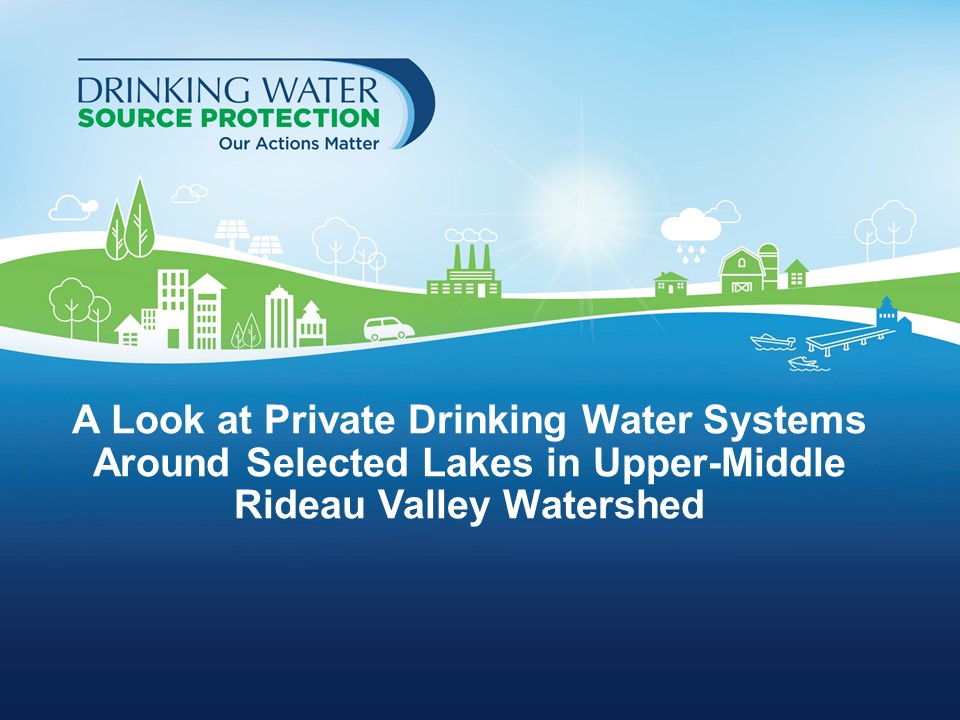 Private Drinking Water Systems in Upper-Middle Rideau Valley Wateshed
Private Drinking Water Systems in Upper-Middle Rideau Valley Wateshed
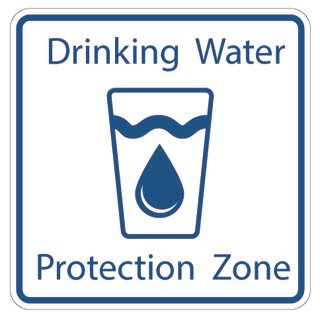
Have you seen these signs?
Their goal is to raise awareness about Drinking Water Protection Zones that surround a community’s shared drinking water source. These zones now have some special protections under the Mississippi-Rideau Source Protection Plan – a locally developed plan under Ontario’s Clean Water Act. The signs can be found in similar zones across the Province!
The zones are in communities, in specific areas around their municipal water sources. Depending on the community, the source may be a well that draws water from an aquifer or an intake that takes water from a river.
The zones were determined through scientific and technical studies that were done to help understand the drinking water source and map the zones, and in these areas some special policies are in place to help protect the drinking water source.
The signs could help inform first responders too! The signs can reaffirm the importance of spill prevention and help to ensure appropriate spill response.
If you live in a Drinking Water Protection Zone, you are encouraged to make small changes that will help to protect rivers and underground aquifers. You might already be doing some things that help you to be a Great Water Resident! Check out some ideas on our Living in the Zone page!
To find out more information about what these signs mean, please view our Fact Sheet

This section is just for kids! You can help protect drinking water sources too. Here are some links with information and activities to help you “go blue”!
Here are some links to information about technical or financial assistance for actions related to protecting water:

It is easy to waste water and take it for granted. After all, here in the Mississippi-Rideau region, we have beautiful lakes and rivers all around us and a seemingly endless supply of groundwater beneath our feet. So why bother with water conservation?
Water conservation:
We all know the basics –install a rain barrel, take shorter showers, use a bucket to wash the car.
If you’re looking for some innovative, new ideas to challenge yourself to save water, check out: 100+ Ways to Conserve Water
Curious about your water use? Try this: Water Footprint Calculator

Farmers understand the importance of clean water and a healthy environment for their crop and livestock production. Best management practices (BMPs) are practical, affordable approaches to protecting a farm's soil and water resources without sacrificing productivity. BMPs such as fencing livestock out of rivers, maintaining a vegetated buffer adjacent to streams, managing runoff from manure storage facilities and adhering to all pesticide guidelines and training can help protect rivers and groundwater. Best management practices are equally important on small farms and for “backyard livestock” too!
City of Ottawa’s Rural Clean Water Program
Rideau Valley Rural Clean Water Program
Each year in Canada, we use an average of five million tonnes of road salts as de-icers and spend more than $1 billion on winter maintenance. Approximately 70 percent of the road salt spread on urban roads is retained in a watershed.
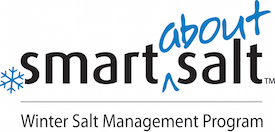 Road salt helps keep roads, driveways and sidewalks safe but it can also result in contamination of drinking water sources. Sodium and chloride in de-icing materials is washed into waterways and ends up in groundwater too. Road salt use is increasing due to climate change, ever expanding paved areas as well as societal expectations for bare roads.
Road salt helps keep roads, driveways and sidewalks safe but it can also result in contamination of drinking water sources. Sodium and chloride in de-icing materials is washed into waterways and ends up in groundwater too. Road salt use is increasing due to climate change, ever expanding paved areas as well as societal expectations for bare roads.
Fortunately, there have been great advancements in “smart salt practices” that have proven effective in achieving improved environmental protection without compromising safety. They involve such principles as using the right material at the right time in the right amount for maximum effectiveness. In Ontario, the majority of road salt used is handled by road authorities such as municipalities and the Ontario Ministry of Transportation, but businesses and homeowners also use and store salt. Road authorities and private contractors responsible for winter road maintenance in our region are being urged to use “smart salt practices” and have Road Salt Management Plans. We can all help by following these Winter Tips to reduce our salt use on private property.
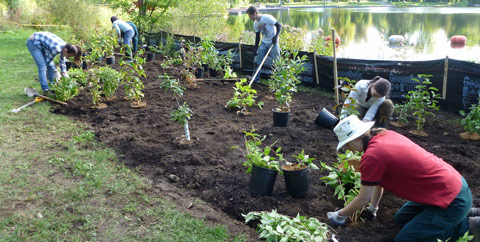 Vegetated shorelines with lots of native trees and shrubs protect water quality by absorbing nutrients and contaminants, trapping sediment and encouraging infiltration of run-off into the ground. If you own shoreline property, you can learn about and get assistance with shoreline naturalization from your Conservation Authority.
Vegetated shorelines with lots of native trees and shrubs protect water quality by absorbing nutrients and contaminants, trapping sediment and encouraging infiltration of run-off into the ground. If you own shoreline property, you can learn about and get assistance with shoreline naturalization from your Conservation Authority.
Rideau Valley Conservation Authority Shoreline Naturalization Program
Mississippi Valley Conservation Authority Shoreline Planting Program
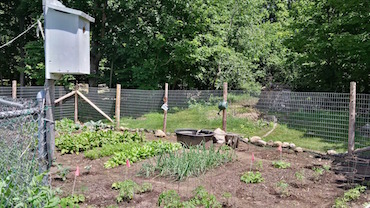 Outside in our yards, gardens and driveways, it is simple – to protect drinking water sources we need to use less water, create less runoff and ensure the runoff that we do create is as clean as possible.
Outside in our yards, gardens and driveways, it is simple – to protect drinking water sources we need to use less water, create less runoff and ensure the runoff that we do create is as clean as possible.
You can easily achieve a green yard with this Greenscapes Guide.
To understand the evils of stormwater runoff, don’t miss Stormwater – Why Should We Care?
For car washing best practices, check out the RiverSafe Carwash campaign
Ontario now has a cosmetic pesticide ban to protect human health and the environment. Pesticides are no longer allowed on lawns, gardens, patios, driveways, cemeteries, parks and school yards.
Some hazardous substances in our lives are not only unavoidable, they are downright useful! To protect our drinking water sources, we need to safely store, handle and dispose of these substances.
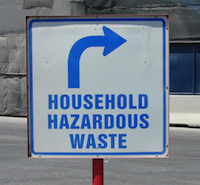
One drop of oil can render up to 25 litres of water unfit for drinking!
Some hazardous substances can be avoided and easily replaced by alternatives that are just as effective. This reduces the amount of chemicals in our environment and eases the burden on wastewater treatment plants. To help you choose less toxic products or to make your own green alternatives, see this Guide to Less Toxic Products
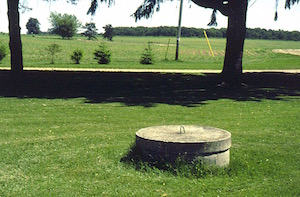 Private water wells that are old, unused or not cared for can result in contamination of groundwater. The contamination can reach other wells in the area and even a shared municipal well that supplies drinking water for numerous people. Properly sealing old wells and following a few simple good practices for wells that are in use safeguards the precious groundwater that so many of us depend on for drinking water.
Private water wells that are old, unused or not cared for can result in contamination of groundwater. The contamination can reach other wells in the area and even a shared municipal well that supplies drinking water for numerous people. Properly sealing old wells and following a few simple good practices for wells that are in use safeguards the precious groundwater that so many of us depend on for drinking water.
For a few simple tips see Rural Water Stewardship Checklist
For a more detailed booklet see this Private Wells Factsheet
For much more great information, visit the Well Aware website
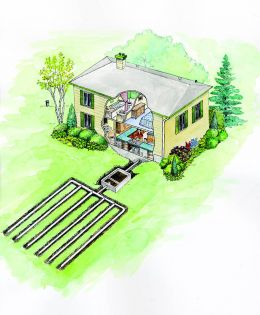 Illustration: Septic Smart, Understanding Your Home’s Septic System bookletMost rural homes have a septic system (also called an onsite sewage system). A septic system typically consists of a tank and leaching or tile bed and does an excellent job of treating household wastewater in locations where there are no municipal sewer services. It is important to know how to care for septic systems to guard against costly system failure and to prevent contaminants from leaching into groundwater or rivers that are used as drinking water sources.
Illustration: Septic Smart, Understanding Your Home’s Septic System bookletMost rural homes have a septic system (also called an onsite sewage system). A septic system typically consists of a tank and leaching or tile bed and does an excellent job of treating household wastewater in locations where there are no municipal sewer services. It is important to know how to care for septic systems to guard against costly system failure and to prevent contaminants from leaching into groundwater or rivers that are used as drinking water sources.
For tips and more details see Your Septic System: Protecting Your Investment and the Environment
Many things we do in our homes and on our properties can directly affect local water quantity and quality. That’s why an important part of protecting drinking water is voluntary action taken by those of us who live in the Drinking Water Protection Zone close to our community’s shared drinking water source. This is your guide to “Living in the Zone”. Imagine a community where everyone is a great water resident!
Mississippi-Rideau Source Protection Region
Rideau Valley Conservation Authority Office
3889 Rideau Valley Drive
P.O. Box 599
Manotick, ON K4M 1A5